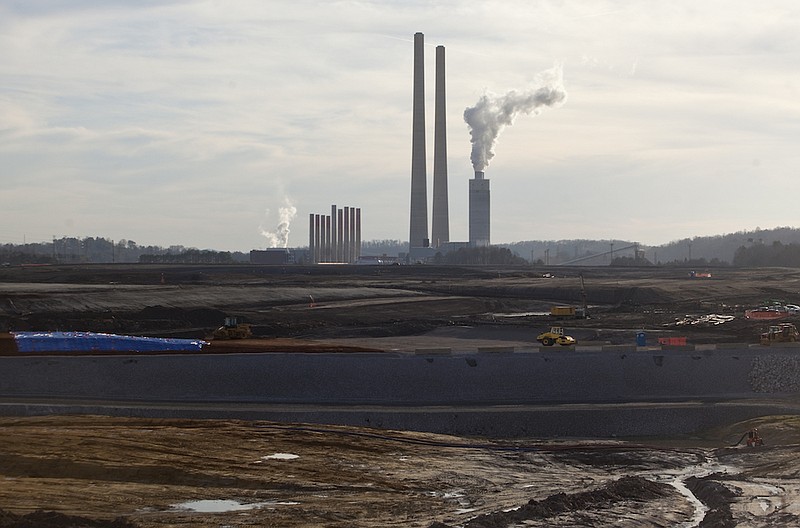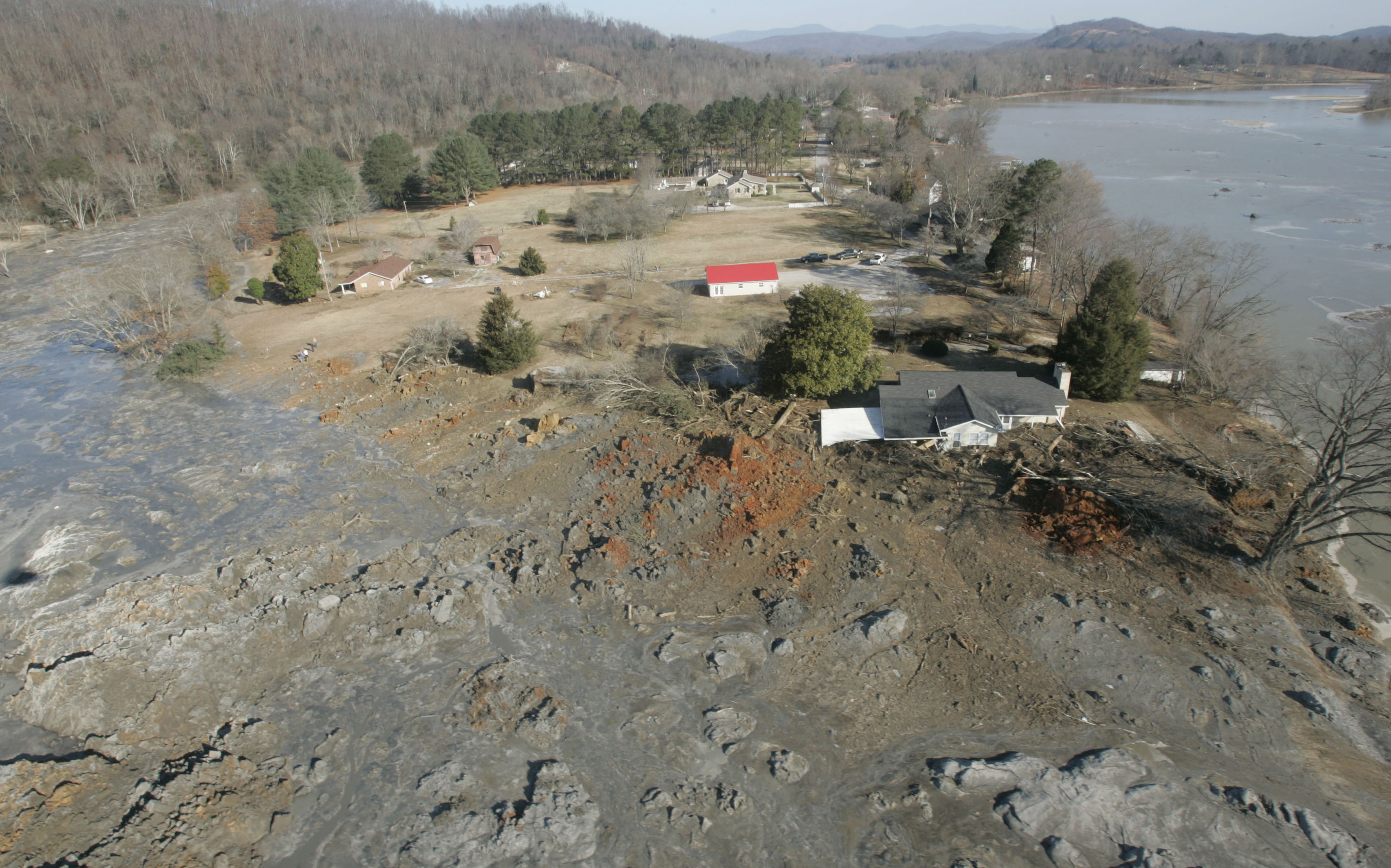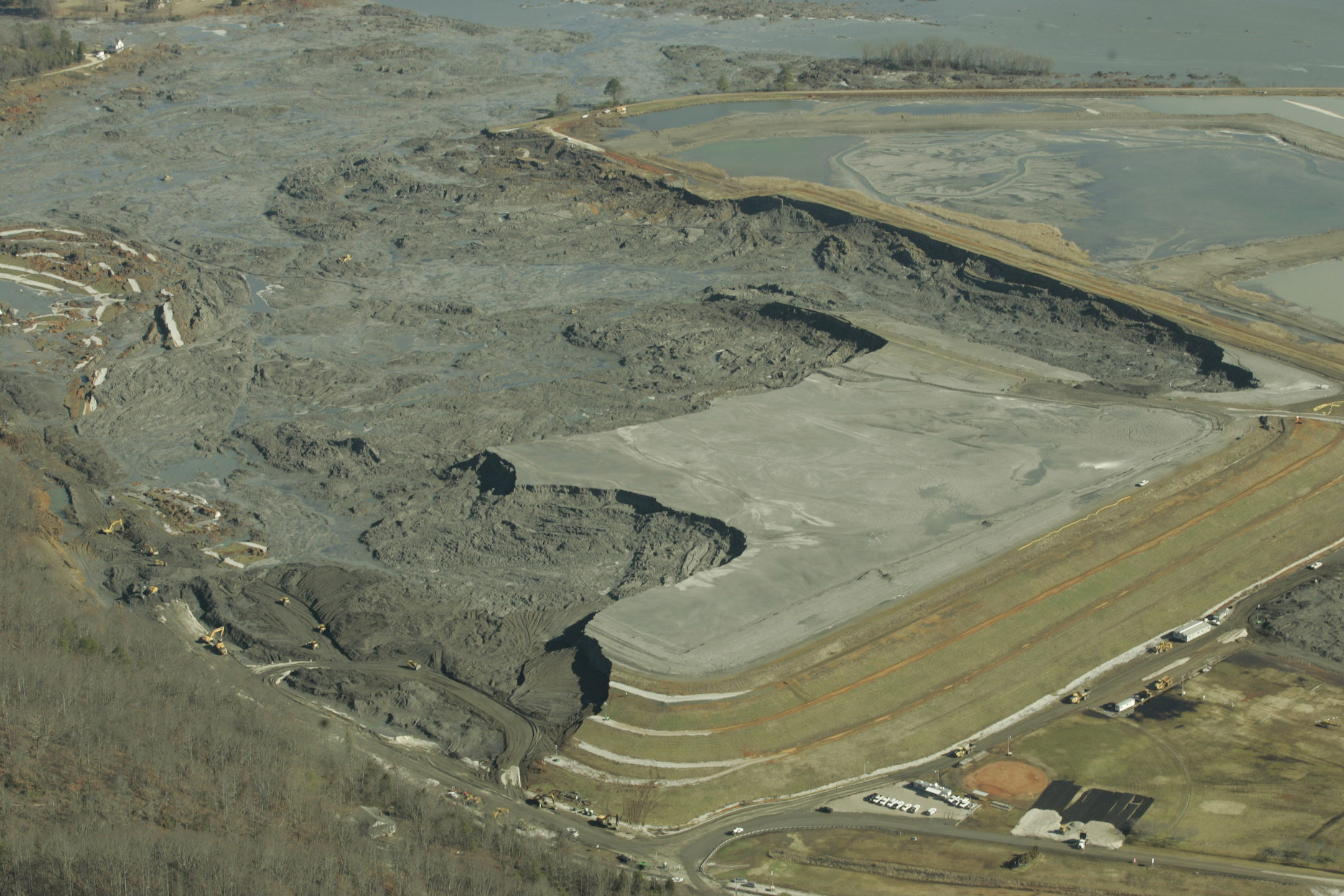Twelve years after the worst coal ash spill ever from a U.S. coal power plant, the Tennessee Valley Authority is considering shutting down the plant where the spill occurred and replacing its coal-fired generation with a cleaner source of power.
TVA will conduct a public hearing next week to begin an environmental assessment on a plan to shut down its Kingston Fossil Plant in the next decade. The nine-unit coal plant built in 1954 at the confluence of the Clinch and Emory rivers is capable of generating 1,398 megawatts of power, or roughly enough power to supply the electricity needs of all of Chattanooga.
TVA's long-range power plan adopted in 2019 recommended the retirement of 2,200 megawatts of coal-fired generation by 2038 and since then TVA President Jeff Lyash has said the utility plans to phase out all of the remaining units in its coal fleet by 2035.
At its peak, TVA operated 59 coal-fired units that collectively supplied nearly two thirds of TVA's power, but the federal utility has boosted its generation from nuclear, natural gas, solar and hydro over the past two decades to cut its carbon emissions by 63% below the 2005 levels and replace the aging coal fleet it phases out across TVA's seven-state region.
On its website, TVA stated its coal plants generally are "among the oldest in the nation" and are having trouble with performance. It described the coal plants as "contributing to environmental, economic and reliability risks."
Those risks produced one of the biggest environmental disasters three days before Christmas in 2008 when a coal ash impoundment at the Kingston Fossil plant collapsed and spilled 5.4 million cubic yards - or about 1.2 billion gallons - of wet coal ash spilled onto 300 acres of residential farmland and into the Emory River.
The coal ash spill was one of the biggest environmental spills ever and led TVA to spend billions of dollars to clean up the Kingston spill and replace similar coal ash ponds at other fossil plants.
Environmental groups concerned about coal ash, air pollution and greenhouse gases linked to global warming from coal plants are pushing TVA to make plans to shut down its entire coal fleet over the next decade and a half.
"Kingston's history of operational, safety, and environmental problems, as well as the ongoing risk of coal ash contamination to local water resources, have long cast a shadow on the plant," said Jonathan Levenshus, a representative from the Sierra Club's Beyond Coal Campaign. "The growing interest by TVA's customers in reliable, cost-effective clean energy investments means that Roane County and the surrounding region is better positioned today than ever to achieve climate and clean energy goals without risky coal or gas plants."
TVA is considering replacing the coal plant with natural gas or solar units, but the shut down of the sprawling Kingston fossil plant could cost TVA jobs and tax equivalent payments from TVA to the county. Nonetheless, some local residents are eager for TVA to find a cleaner source of power after operating the Kingston coal plant for 67 years.
"As a former union carpenter who's worked at many TVA coal plants, I understand and appreciate the role they've played," says Cleveland Carr, who lives a few miles from the Kingston coal plant. "I think that TVA has a great opportunity with the closure of Kingston to be a leader in clean energy technologies, in re-establishing strong unions, and improving air and water quality for my children and future generations."
Carr now works for a solar power contractor that might benefit by more solar power to replace the Kingston coal generation.
Following the 2008 coal ash spill, TVA has provided cleanup and restoration funds to local government and purchased the damaged residential property from the spill. But TVA and its primary contractor for the coal ash cleanup at Kingston, Jacobs Engineering, have been sued by former contractor workers who claim their health was damaged working in the coal ash residues.
"Making plans to retire the Kingston coal plant is an opportunity for TVA to transform a troubled relationship by eliminating a cause of deep residual pain while engaging with a community eager for the benefits of clean energy investment," said Dan Tepstra, a member of the Sierra Club Tennessee Chapter and resident in Roane County.
TVA began a similar environmental assessment last month on plans to close its biggest coal plant, the Cumberland Fossil plant near Clarksville, Tennessee.
A virtual on-line open house to gain input on the public scoping phase of its Kingston plant assessment is scheduled at 6:30 p.m. on Tuesday, June 29. TVA is accepting comments about Kingston's future through July 10, 2021.
More information is available at tva.gov/NEPA.
Contact Dave Flessner at dflessner@timesfreepress.com or at 423-757-6340.


